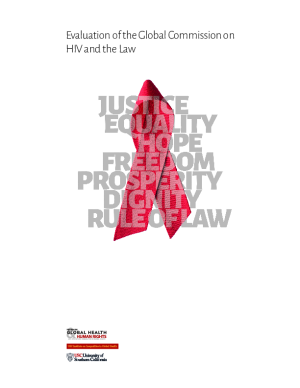Evaluation of the Global Commission on HIV and the Law
Findings from an external evaluation of the impacts and legacy of the Global Commission on HIV and the Law. It explores the fulfilment of the Commission’s objectives, taking into account the perspectives and experiences of representatives from government, including law and policy makers, civil society including those most marginalised and affected by HIV, as well as United Nations agencies and other development partners.

